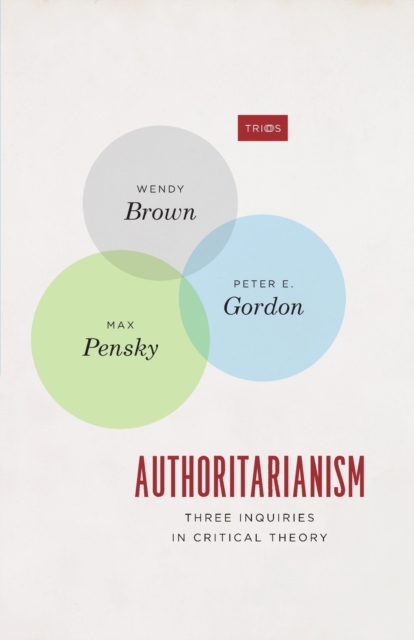CITESTE MAI MULT
Detalii
Descriere RO
Across the Euro-Atlantic world, political leaders have been mobilizing their bases with nativism, racism, and xenophobia, along with paeans to “traditional values,” in brazen bids for electoral support. How do we understand this move to the mainstream of political policies and platforms that lurked only on the far fringes during most of the post-War era? Does it herald a novel wave of authoritarianism? Is liberal democracy itself in crisis?
In this volume, three distinguished scholars draw upon critical theory to address our current political predicament. Wendy Brown, Peter E. Gordon, and Max Pensky share a conviction that critical theory retains the power both to illuminate the forces producing the current constellation and possible paths away from it. Brown explains how “freedom” has become a rallying cry for manifestly un-emancipatory movements; Gordon dismantles the idea that fascism is rooted in the susceptible psychology of individual citizens and reflects instead on the broader cultural and historical circumstances that lend it force; and Pensky brings together the unlikely pairing of Tocqueville and Adorno to explore how democracies can buckle under internal pressure. These incisive essays do not seek to smooth over the irrationality of the contemporary world, and they do not offer the false comforts of an easy return to liberal democratic values. Rather, the three authors draw on their deep engagements with nineteenth and twentieth century thought to investigate the historical and political contradictions that have brought about this moment, offering fiery and urgent responses to the demands of the day.
EdituraThe University of Chicago Press
Dimensiuni142 x 215 x 6
Data Publicarii09/11/2018
Format
Necartonata
Numar pagini160
Aceasta este o carte in limba engleza. Descrierea cartii (tradusa din engleza cu Google Translate) este in limba romana din motive legale.
In intreaga lume euro-atlantica, liderii politici si-au mobilizat bazele cu nativism, rasism si xenofobie, impreuna cu paeanii la „valorile traditionale”, in oferte descompuse pentru sprijin electoral. Cum intelegem aceasta trecere la curentul principal al politicilor si platformelor politice care se ascundeau doar la marginea indepartata in cea mai mare parte a erei postbelice?

